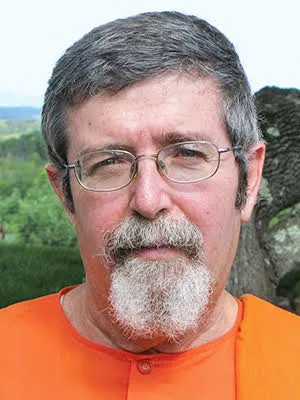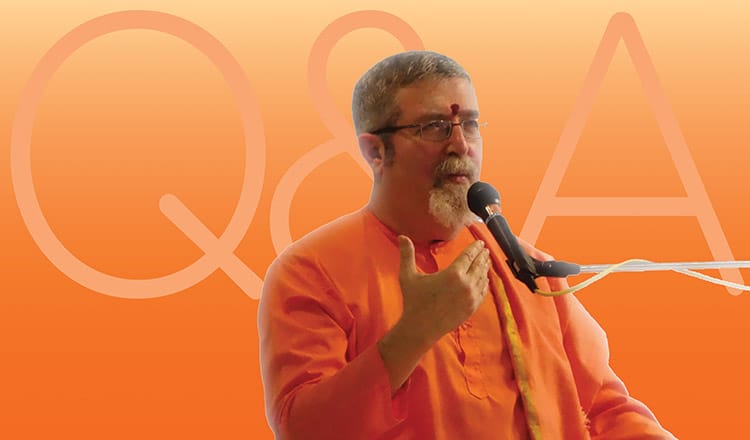Sivananda Bahamas Blog
Expand Your Horizons …
Our Blog
Applying Yoga Teachings in Daily Life
Question: How do we apply the teachings of yoga in our daily life?
Answer: Assuming that we receive teachings of yoga and of Vedanta, we need to approach a teacher and to ask this question: “How do I apply these teachings in my daily life?” The answer will be different from person to person. The best thing is to receive this guidance from a teacher. The teacher does not have to be a perfect guru, does not even have to be a senior swami, but should be an experienced teacher who lives a yogic life.
Generally speaking, the teacher will suggest a daily routine. This will be one thing. The second thing the teacher will suggest is to fill in a spiritual diary. A spiritual diary is a diary where we record our daily spiritual practices, what experiences we had, what we learned. We also write down questions we have or doubts which need to be clarified. Swami Vishnudevananda and Swami Sivananda suggested that once a week or once a month, we send this spiritual diary to our teacher, so the teacher can go through it and give us further suggestions and instructions.
We can ask the teachers questions such as how to improve self-discipline. This is a big issue. Sometimes it is difficult to practice at home because it is difficult to keep the discipline.
Therefore a very helpful suggestion in order to keep the discipline is to visit a yoga center. Go to the center once a week or twice a week, to be in the company of other people who are yoga devotees, yoga practitioners — and do some Karma Yoga (selfless service). This is always very helpful, some service. And if we come once or twice a week to the center, and we do it regularly, we are already developing a routine of practice, which is very important. One of the cardinal principles in yoga is perseverance, or regularity of practice. It is very important to try to practice every day, even a little.
Generally speaking, it is very good to practice early in the morning, when we wake up. There should be some practice in the morning before the day starts. It is also very good to end the day with some practice. It does not have to be a big practice. And during the day, we should find opportunities for many short practices. Even in the middle of our busy lives. For example, a type of practice that we can do during the day is japa — repetition of mantra. We can also practice Karma Yoga, the yoga of selfless service. And we can develop the moral and ethical qualities of a yogi, the yamas and niyamas, which are very, very important for our development. We can develop these qualities, or attributes, during the day throughout our daily life. And occasionally, without attracting too much attention, we can even practice some pranayama during the day. And so on, and so on. We can also meditate occasionally, just for five minutes. We can close our eyes and meditate many times during the day. I would suggest something like five minutes per hour to do some sadhana (practice), plus start the day with some yogic practice and to end the day with some yogic practice.
Elements of a daily yogic practice would include practice of yogic postures, practice of yogic breathing or pranayama, practice of meditation, practice of mantra repetition, and some chanting. Also a little writing of mantra, you can keep a notebook where you write the mantra, for example. And a little study — Swami Sivananda would suggest daily study of the Bhagavad Gita, even one verse. Another text that he suggested is the Viveka Chudamani, the "Crest Jewel of Discrimination," by Adi Shankaracharya. Swami Sivananda said “If you have two pockets, keep in one pocket the Bhagavad Gita, and keep in the other pocket the Viveka Chudamani — and on your neck keep a japa mala, the rosary with which we repeat the mantras.
Perseverance is the main thing. If you say, “I do not have time,” you can still practice 15 minutes a day. But it needs to be every day. Ten minutes a day, but every day. The perseverance, the regularity is more important than the quantity. Later on, as the practice becomes sweet and beautiful and blissful, we will search for time to do it. It will not be a chore or punishment any more. In the beginning, it is difficult to wake up in the morning and meditate. But later on, we are going to look forward to it — “When is this morning going to come, so I can meditate?”
Another element which is very important is satsanga, group meditation with other yoga practitioners — this is very, very important. It supports our practice a lot, as does group practice of yogic postures and breathing. Of course Karma Yoga is the foundation of all the yogas — the yoga of selfless service. Go to the yoga center. The center is a very good place to do Karma Yoga.
Regardless of what our way of life is, there is always a possibility to do some type of yogic practice. But we need individual advice, individual instruction, because every individual is different.

Swami Swaroopananda is a senior disciple of Swami Vishnudevananda. A practicing yogi from a very young age, Swami Swaroopananda has dedicated his life to the practice and teaching of yoga. He taught in Yoga Teacher Training Courses around the world and is currently teaching advanced yoga philosophy courses and lectures internationally. He is Director of the Sivananda Ashram Yoga Retreat and acharya (spiritual director) for the Sivananda centers and ashrams in the Bahamas and the Middle East. He is a member of the Board of Directors of the International Sivananda Yoga Vedanta Centres.
Upcoming Courses
In honor of the Sivananda lineage and Swami Swaroopananda's birthday, we invite all guests, friends, and residents of the ashram to come together for a celebration.
During this special time of year we invite you to join us in celebrating wisdom, love, compassion, and the transcendence of artificial barriers.








